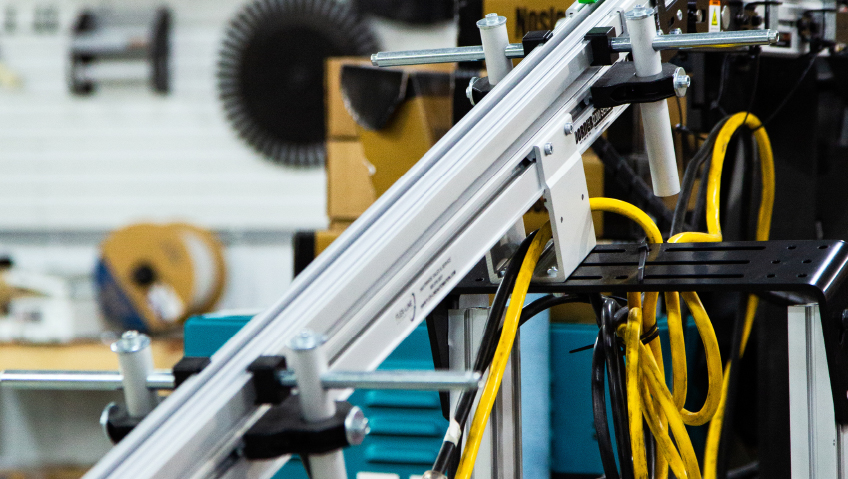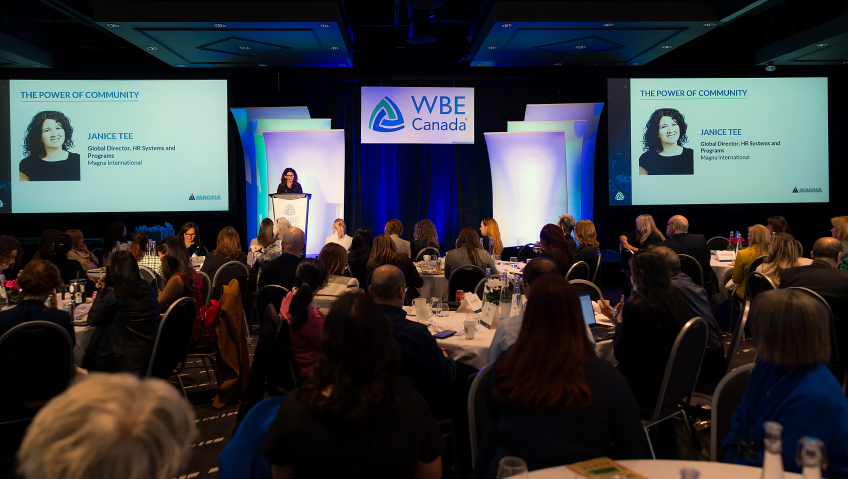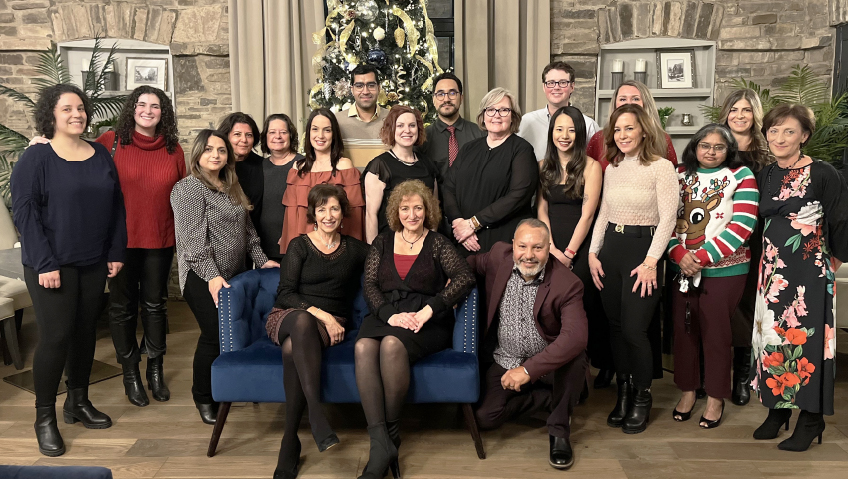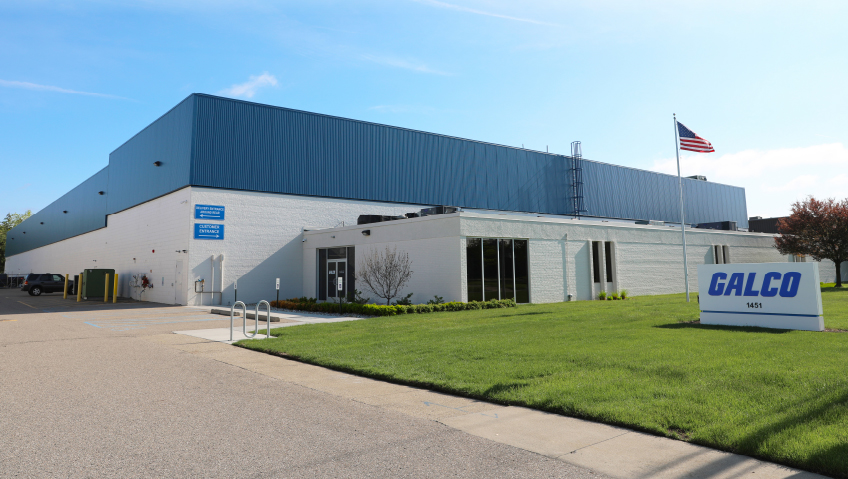When you’re in the business of automation for as long as Cathy Rinne has been, you not only gain plenty of experience, but have lots of stories to tell. Looking back on over 40 years of creating state-of-the-art automation solutions, she recalls one meeting with a group of young male engineers. “When did I become so old?” she asked her daughter, Lauren. “I’m trying to make the sale, and I feel like such a cougar!” Both laughed, and her nickname, ‘The Conveyor Cougar,’ was born. This soon led to creating TikTok and Twitter accounts to market the business and its many turnkey products and services.
“One thing that sets us apart is our sense of humor,” says Cathy. For the youthful and energetic President and majority owner of Flex-Line Automation, Inc., not taking herself too seriously has proven to be a benefit.
Continuing to innovate, the company is especially proud of its patent-pending boxEZ cobot case erector, seen at https://youtu.be/6TJAZI6HKz8. Automated, flexible, and compact, the boxEZ uses a customizable vacuum end effector and forming table to fold and seal multiple box sizes and types. The product is robot-agnostic, able to be used with any robot, and allows those with slower cycle times to case pack or palletize with the same robot.
To date, Cathy Rinne and the company have been featured on programs including Viewpoint with Dennis Quaid and World’s Greatest Television. “I think we are just quirky enough that these TV producers saw us as being an interesting company to focus on, because we are different and doing things differently,” she says. “At this point in my career, I feel entitled to enjoy it, and fortunately I do. If you look at our videos, they are not the polished executive videos—we are out there showing off flame-retardant chain with a flamethrower—because we are genuine rednecks,” she laughs. “We are very Midwestern in how we approach things, and just real people off the farm. We have a high-stress job, and it needs to be fun.”
Family values and farm life
Seamlessly integrating electronic and mechanical systems, controls, sensors, and other advanced technologies like robotic arms, actuators, and conveyor belts. Flex-Line Automation, Inc. designs and builds automation systems that are used in virtually every industry today, from automotive, to pharmaceutical, and food and beverage. Fast and efficient, today’s automation systems enable companies to boost profits, increase quality and productivity, and enhance safety.
With a population under 8,000, the Midwestern city of Chester, Illinois, seems like an unlikely place for one of America’s leading automation companies. But for Cathy Rinne and her family, it is not only Flex-Line’s base, but also home.
Started in December 1984, the business was co-founded by Cathy, her husband Rhett, and his parents. The roots of the company, however, go much deeper. Cathy’s father-in-law Orville Rinne was a salesman for Henry Filters. A chance meeting with an engineer at SKF Bearings led to a discussion about a new conveyor system “that was going to revolutionize the industry.” With no one in the United States to market, distribute, or sell the system, Orville and Rhett jumped on the opportunity.
“Orville thought it would be a great idea if we could set up a distributorship with that engineer,” says Cathy. They did, and the engineer went on to establish Kentucky-based SpanTech, a conveyor manufacturer operated today by the engineer’s daughters. The family worked with SpanTech to bring FlexLink’s plastic chain conveyors into the U.S., and when SpanTech developed its own conveyor line, Flex-Line became the distributor of FlexLink, a role it has proudly held since 1987.
Incorporated in 1991, Flex-Line built its main facility the same year. Growing steadily, the company now has three facilities, and no longer just integrates conveyors but also robotics and various kinds of ancillary equipment.
Running a farm while operating Flex-Line has meant many sacrifices for the family. Cathy was travelling for business and missed Lauren’s first steps. Today, Lauren (Rinne) Van De Mark works alongside her mom in her Sales and Marketing role. A woman-owned and women-operated company, Flex-Line is certified as a Women-Owned Small Business (WOSB) by the SBA, another point of distinction for the company.
Being based in farm country has its advantages. “It was a fun way to grow up,” says Lauren, remembering the early days of the company when it started on the family farm. And from a staffing perspective, the company can bring on workers depending on the job. The main business in town is a prison system where many people retire at age 50, and when Flex-Line has a big project, many retirees will come in part-time on a project basis. “We are very lucky that we have that resource here,” comments Cathy.
The company has also been actively promoting itself—and building opportunities in automation and robotics—to high school students. Following the pandemic, the business began working with high schools, showcasing robotics programming and career opportunities in automation and manufacturing.
“There’s a big misconception that to work in automation or with robots and conveyors, you have to be an engineer, and that is just not the case,” explains Lauren. “We’ve been exposing kids to the idea that if they want to be a robot programmer, they don’t have to get a mechatronics degree. And even if they just want to work with automation, there are different jobs out there besides just programmer and engineer. People in this industry are more than happy to take you and train you and get you where you want to go.”
The company is also working with several trade groups, and has begun promoting robotics clubs in schools, which can lead to a great career path.
“Farm kids have that ingenuity, and part of what we do with automation and integration requires ingenuity. It’s never the same thing twice,” says Cathy. “We are solving problems for customers. Having the ability to look at what you have on hand, and make something work, is something farm kids are very familiar with doing. Having that background really lends itself to our industry.”
Superior service
The company generally works with customers producing individual products under 50 pounds (22.6 kg). Flex-Line’s clients are involved in pharmaceutical, medical devices, personal care products, food and beverage, automotive, paper products (such as paper towels), and even checkbook folios. “We have experience in a wide number of industries, and have done a lot of different things for different types of customers,” says Cathy.
Highly customer-driven, the company provides as much or as little as a customer requires from engineering or engineered parts to turnkey systems, spare parts, and more. This can include complete projects incorporating many different elements, a tremendous advantage today with so many companies struggling to find their own engineers or resorting to working with numerous suppliers to handle discrete project elements. Integrators like Flex-Line provide peace of mind with single-source responsibility.
That means that the team seamlessly brings everything together. For customers, this also means just one point of contact. “And that’s what we like to do, be that single source,” states Lauren. “We work in whatever capacity our customers need us to work in. We are 100 percent customer-driven, and want every customer to feel like they are our only customer. So, we want to be very attentive to what their wants and needs are.”
Another of Flex-Line’s greatest strengths is its openness to partnering with other integrators as collaborators, rather than competitors. If a client needs a certain type of welding, Flex-Line has expert welding partners who will step in to handle that part of the project. Knowing who your resources are and being able to bring those resources to a project is a tremendous value.
Forming many strong relationships over the decades, Flex-Line’s strengths include knowing which companies excel at which services and being able to pull everything together in one perfect package. “It isn’t as much about knowing everything or doing everything, but knowing who your resources are and how to use them,” says Cathy. “Single-source responsibility is a big one for customers. We have been in business for so long, and in so many industries, that it means we have a very large pool of experience in different material handling applications. So, we come up with some pretty creative solutions that engineers and companies that don’t have that breadth of experience don’t necessarily see. We are like a solution superstore.”
Indeed, Flex-Line handles virtually everything under one roof. This includes stocking almost a million dollars in conveyor components along with replacement parts, performing repairs, and other services. A short conveyor can be turned around in as little as 24 hours, and conveyor and robotics systems are tested in-house to ensure everything works before shipment and installation. The company can also perform rebuilds, repairs, and programming in the field, a level of personalized service not always available from larger automation businesses.
“With big companies, you get a lot of layers,” says Cathy. “Flex-Line is like a sheet cake, the kind your mother used to bake. We are a single layer, and very responsive. We can make things happen in the amount of time it takes you to figure out who to speak to at a larger company. Flex-Line is a ‘turn on a dime’ integration company known for customer service—we can even find a courier if need be.” A real business in the traditional sense, customers can call Flex-Line and get a real person, not a machine.
Friendly and attentive, the company likes things the way they are. This includes some main competitors also being among Flex-Line’s vendors, such as FlexLink. “They are both a competitor and a supplier for us,” Cathy shares. “What makes us stand out is, if you need something on a weekend and you call our office, it goes to our cell phones. Someone’s going to drive in, get a courier, check something, or get information for you. If you call a large company, you’re going to get an automated phone system saying, ‘Sorry, call us back on Monday,’” she says.
“Being small, and a family business, makes us able to respond, and that’s a significant advantage. You don’t do business for 40 years without figuring some things out.”






